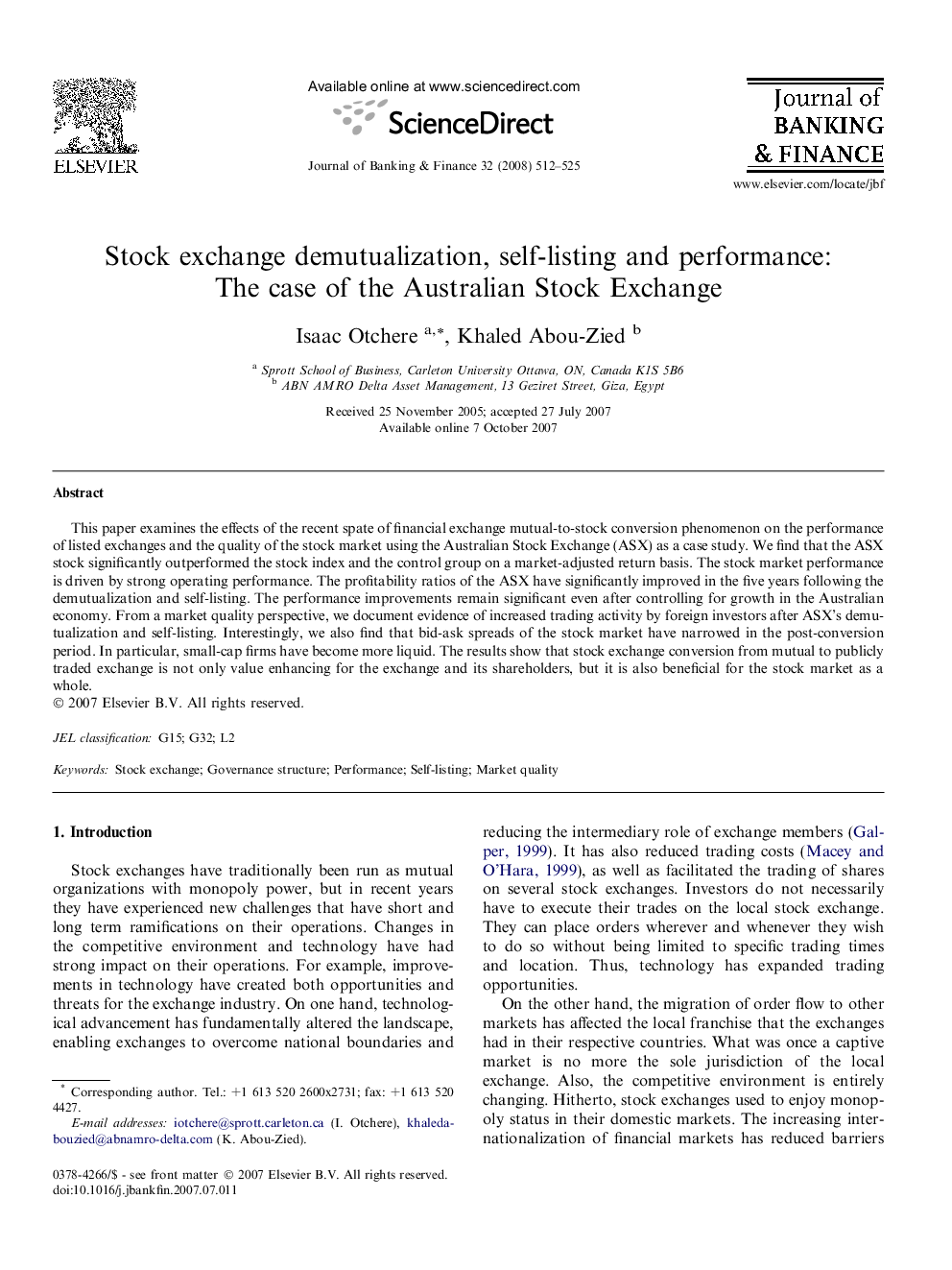| Article ID | Journal | Published Year | Pages | File Type |
|---|---|---|---|---|
| 5090994 | Journal of Banking & Finance | 2008 | 14 Pages |
Abstract
This paper examines the effects of the recent spate of financial exchange mutual-to-stock conversion phenomenon on the performance of listed exchanges and the quality of the stock market using the Australian Stock Exchange (ASX) as a case study. We find that the ASX stock significantly outperformed the stock index and the control group on a market-adjusted return basis. The stock market performance is driven by strong operating performance. The profitability ratios of the ASX have significantly improved in the five years following the demutualization and self-listing. The performance improvements remain significant even after controlling for growth in the Australian economy. From a market quality perspective, we document evidence of increased trading activity by foreign investors after ASX's demutualization and self-listing. Interestingly, we also find that bid-ask spreads of the stock market have narrowed in the post-conversion period. In particular, small-cap firms have become more liquid. The results show that stock exchange conversion from mutual to publicly traded exchange is not only value enhancing for the exchange and its shareholders, but it is also beneficial for the stock market as a whole.
Related Topics
Social Sciences and Humanities
Economics, Econometrics and Finance
Economics and Econometrics
Authors
Isaac Otchere, Khaled Abou-Zied,
